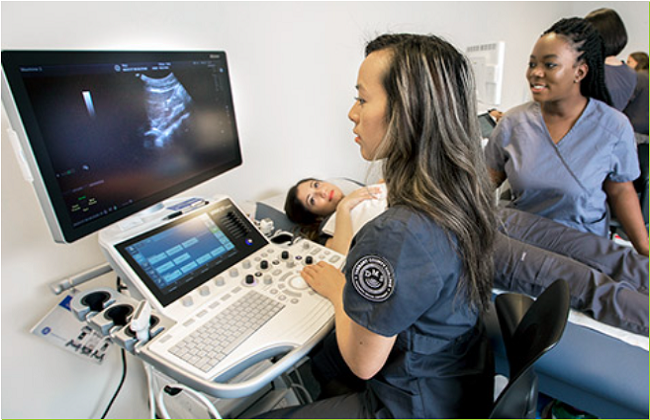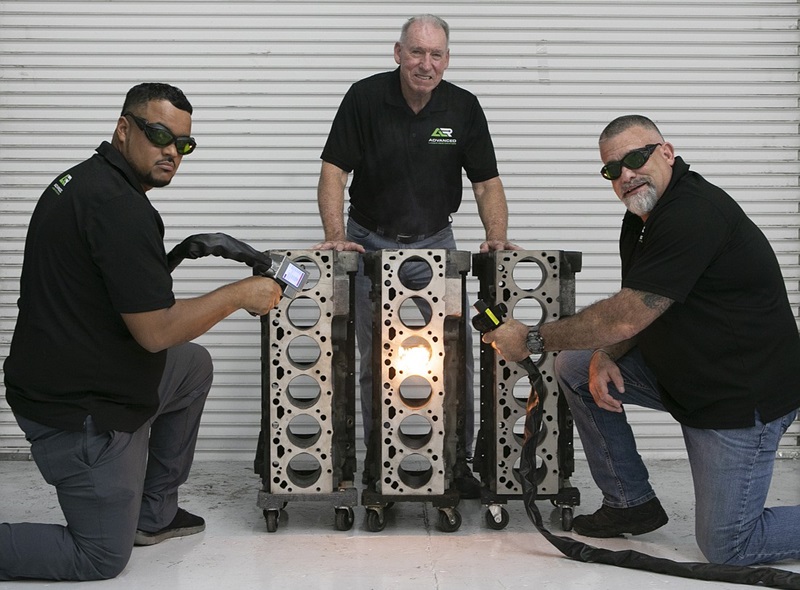If you’re considering a career in diagnostic medical sonography, then Ultrasound Tech School is your first step. This field offers a promising career with growing job opportunities and a rewarding work environment. However, before diving into the world of ultrasound, there are several essential topics you need to know to set yourself up for success. In this article, we’ll cover the 7 key topics that every prospective Ultrasound Tech School student must understand. Whether you’re exploring your options for attending an Ultrasound Tech School or already enrolled, these crucial aspects will guide you in your journey toward becoming a skilled ultrasound technician.
1. Choosing the Right Ultrasound Tech School
The first step to success begins with selecting the right Ultrasound Tech School. This decision is critical because it will set the foundation for your education and career. You want a school that offers:
- Accredited Programs: Accreditation ensures that the program meets industry standards and provides high-quality education. The CAAHEP (Commission on Accreditation of Allied Health Education Programs) is the leading accrediting body in the United States for ultrasound programs.
- Experienced Faculty: Choose a school with instructors who have hands-on experience and a strong background in sonography. Experienced faculty can offer valuable insights and practical tips.
- Comprehensive Curriculum: The curriculum should cover essential topics, such as human anatomy, medical terminology, patient care, and ultrasound technology. Look for programs that provide a broad range of subjects that will help you succeed as a sonographer.
- Clinical Opportunities: Practical experience is crucial for mastering ultrasound techniques. A good school will offer strong partnerships with hospitals and medical centers to provide you with ample hands-on training.
Take the time to research each program thoroughly. Visit their websites and read reviews from former students to get an idea of the quality of education offered.
Tip: Don’t forget to consider the school’s clinical training opportunities! Hands-on experience in medical settings is crucial for building real-world skills.
2. Understanding the Ultrasound Technology
Ultrasound technology is the backbone of what you’ll learn and practice in Ultrasound Tech School. It’s important to understand how ultrasound machines work and the role they play in diagnosing and monitoring medical conditions. Sonographers use high-frequency sound waves to create images of internal organs and tissues, helping healthcare providers make accurate diagnoses.
Here’s a deeper dive into the technology:
- How Ultrasound Machines Work: Ultrasound machines use sound waves that bounce off the body’s internal organs and tissues, creating real-time images. These images help doctors identify issues such as tumors, pregnancy complications, and heart conditions.
- Types of Ultrasound: There are different types of ultrasounds, each specializing in specific areas of the body. Some of the most common types include:
- Abdominal Ultrasound: Used to examine organs like the liver, kidneys, and pancreas.
- Obstetric Ultrasound: Commonly used to monitor the health of a fetus during pregnancy.
- Vascular Ultrasound: Helps in diagnosing vascular issues, including blood clots and blockages.
As an ultrasound tech, you’ll learn how to operate these machines effectively to produce clear, accurate images. You’ll also be responsible for adjusting settings to optimize the quality of the images based on patient size, anatomy, and medical condition.
Pro Tip: Spend time learning the physics of ultrasound. A strong understanding of how sound waves interact with the body will enhance your skills and confidence as a technician.
3. Coursework and Key Subjects to Expect
In Ultrasound Tech School, you’ll cover a variety of subjects that will equip you with the knowledge and skills needed for a successful career. The coursework will include a mix of theory and hands-on practice, giving you a well-rounded education in medical sonography.
Here are some of the key subjects you’ll encounter:
- Human Anatomy and Physiology: To be an effective ultrasound tech, you need a solid understanding of the human body. Learning about organ systems, blood flow, and tissue types will help you interpret ultrasound images accurately.
- Medical Terminology: Knowing the language of healthcare is vital for communication with doctors and patients. You’ll learn terms related to the body, diseases, and procedures, allowing you to function efficiently in a medical setting.
- Patient Care and Safety: As an ultrasound tech, you’ll be responsible for ensuring patient comfort and safety during procedures. You’ll learn how to position patients, explain procedures, and handle sensitive situations.
- Ultrasound Physics: A core part of the program will involve understanding the science behind ultrasound technology. You’ll learn how sound waves travel through the body, and how to adjust machine settings for optimal imaging.
Your coursework will be designed to provide a comprehensive understanding of both the technical and human aspects of the profession. Many programs also include specialized courses depending on your area of interest, such as obstetrics or vascular sonography.
Quick Reminder: Don’t shy away from challenging subjects like ultrasound physics. A solid foundation in this area will help you troubleshoot and adjust equipment, setting you up for success.
4. Clinical Training and Hands-On Experience
The theoretical part of your education is important, but clinical training is where the real magic happens. During this phase, you’ll gain hands-on experience performing ultrasounds under the supervision of licensed professionals. Clinical training is essential for mastering the practical aspects of the job and building your confidence.
Here’s why clinical experience is so crucial:
- Real-World Application: Clinical training allows you to apply the knowledge you’ve gained in a real medical environment. It’s one thing to learn about ultrasound techniques in the classroom, but applying that knowledge with real patients is where you’ll truly hone your skills.
- Mentorship: During your clinical rotations, you’ll be guided by experienced sonographers who can help you improve your technique and troubleshoot problems. These mentors can offer valuable advice that will set you up for success in your career.
- Confidence Building: Performing ultrasounds on actual patients will help you build confidence in your abilities. It will also help you develop effective communication skills with patients and other healthcare professionals.
Make sure you complete as many clinical hours as possible during your training. The more experience you gain, the more prepared you’ll be for your career as an ultrasound tech.
Tip: Take full advantage of your clinical rotations. This is a great opportunity to network and learn from the best in the field.
5. Certification and Licensing Requirements
Once you complete your Ultrasound Tech School program, the next step is certification. Certification is not only required by many employers but also ensures that you meet the necessary standards to practice as a sonographer. Certification helps demonstrate your knowledge and competence in the field, making you a more competitive job candidate.
The most widely recognized certification body is the ARDMS (American Registry for Diagnostic Medical Sonography). They offer certifications for various specialties, including general sonography, vascular sonography, and obstetric sonography. Here’s what you need to know about certification:
- RDMS (Registered Diagnostic Medical Sonographer): This is the primary certification for ultrasound techs. To obtain it, you’ll need to pass exams that assess your knowledge in areas like anatomy, physiology, and ultrasound physics.
- Specialization Certifications: Once you’ve become certified in general sonography, you can pursue additional certifications to specialize in specific areas of ultrasound, such as obstetrics or vascular sonography.
- State Licensure: While certification is typically required, some states may also require a separate license to practice as an ultrasound tech. Be sure to check your state’s licensing requirements.
Quick Fact: Certification and licensure can significantly increase your employability and earning potential.
6. Career Outlook and Job Opportunities
The job outlook for ultrasound technicians is incredibly promising. The demand for ultrasound techs is expected to grow as the healthcare industry continues to expand, and as more people require diagnostic imaging services. According to the Bureau of Labor Statistics (BLS), the employment of diagnostic medical sonographers is projected to grow by 12% from 2020 to 2030, much faster than the average for all occupations.
- Work Environments: Ultrasound techs have a variety of work environments to choose from, including hospitals, outpatient centers, physician’s offices, and medical labs.
- Specialization Options: After becoming certified, you can choose to specialize in specific areas of ultrasound, such as abdominal, vascular, or musculoskeletal sonography. Specializing can lead to higher salaries and greater job opportunities.
- Salary Expectations: The median annual wage for diagnostic medical sonographers is around $75,000, according to the BLS. However, this can vary depending on your location, experience, and area of specialization.
Overall, the career prospects for ultrasound techs are bright. If you’re looking for a stable and rewarding career, this is an excellent field to enter.
Bonus Tip: Consider pursuing additional certifications to increase your earning potential and job prospects.
7. Continued Education and Career Growth
The field of ultrasound technology is constantly evolving. To stay competitive and ensure long-term success, you’ll need to pursue continued education throughout your career. Here’s how to continue growing professionally:
- Advanced Certifications: After becoming a registered diagnostic medical sonographer, you can pursue additional certifications in specialized fields like vascular sonography, pediatric sonography, or musculoskeletal sonography.
- On-the-Job Learning: Many sonographers participate in workshops, webinars, and conferences to stay updated on the latest advancements in ultrasound technology.
- Graduate Degrees: Some ultrasound techs choose to pursue higher education, such as a bachelor’s or master’s degree, to open up opportunities in teaching, research, or administration.
Healthcare is always evolving, and staying updated on the latest developments will ensure you remain competitive and at the top of your field.
Pro Tip: Never stop learning. New ultrasound technologies and techniques are always being developed, and continuous education will keep you ahead of the curve.
Frequently Asked Questions (FAQ)
1. How long does it take to complete an Ultrasound Tech School program?
Most Ultrasound Tech School programs take around two years to complete if you’re pursuing an associate’s degree. Some certificate programs can be completed in about 12 to 18 months.
2. Is certification required to work as an ultrasound tech?
While certification isn’t always required by law, it is often required by employers. It also helps increase your job prospects and salary potential.
3. Can I specialize in a specific area of ultrasound?
Yes! After obtaining certification in general sonography, you can choose to specialize in areas like obstetrics, vascular sonography, or pediatric sonography.
4. What skills are essential for becoming an ultrasound tech?
Key skills include attention to detail, strong communication skills, technical proficiency, and the ability to work under pressure.
5. What is the job outlook for ultrasound techs?
The job outlook is positive, with the demand for ultrasound techs projected to grow much faster than average over the next decade.
Conclusion
Choosing the right Ultrasound Tech School and fully understanding the key topics in ultrasound technology are crucial steps in ensuring a successful career. From selecting an accredited Ultrasound Tech School and understanding the technology to gaining hands-on experience and securing certification, every aspect of your education will set the foundation for your future in this growing field. The healthcare industry needs skilled and compassionate sonographers, and with the right preparation, you’ll be well on your way to a fulfilling and rewarding career. For those interested in further expanding their technical skills, innovations like those seen at Lib Tech can offer valuable insights into cutting-edge technologies that might shape the future of medical imaging.
You May Also Like:
Lash Tech Certification: 7 Essential Tips for Success and Growth




